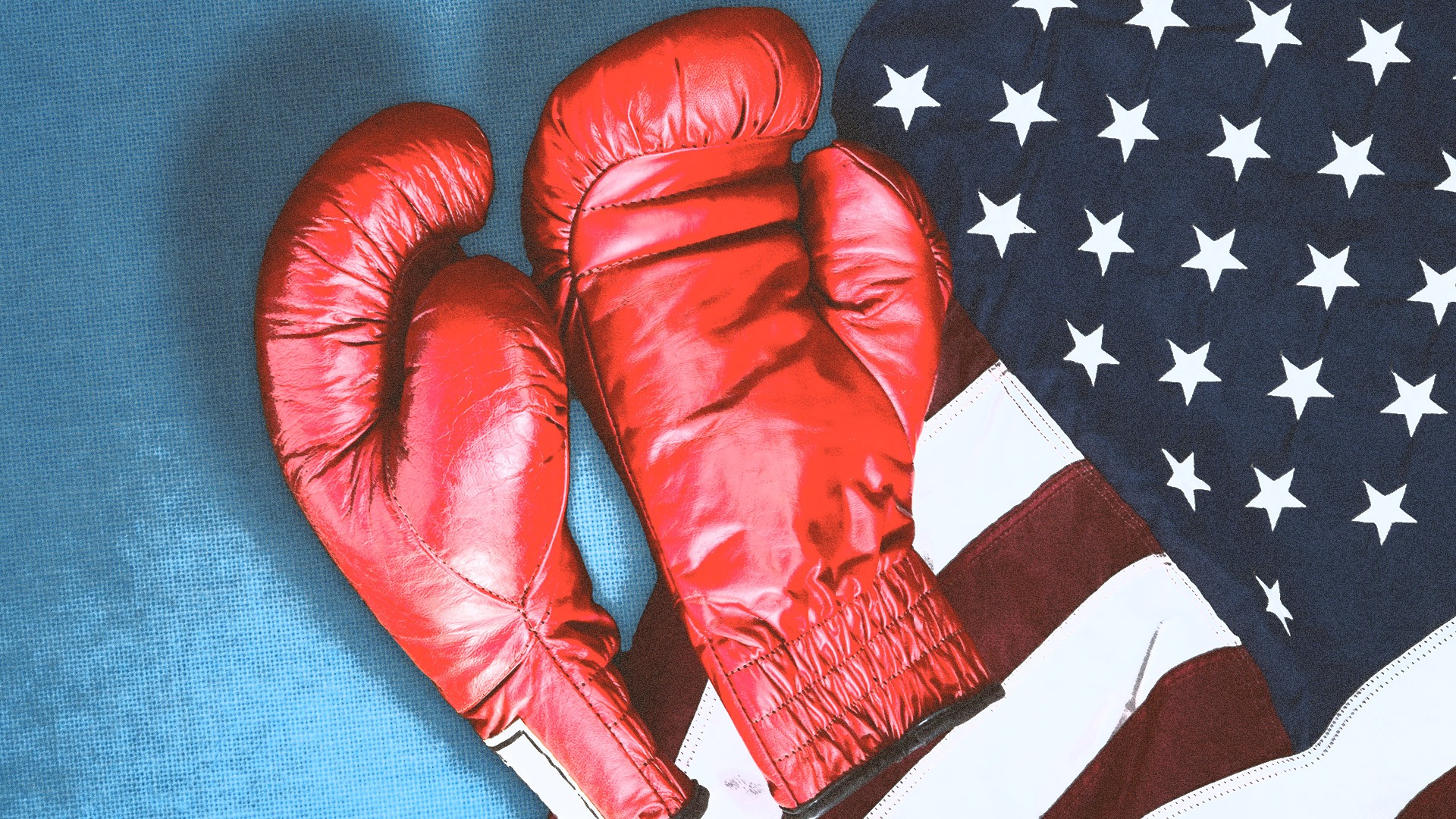Ali’s Legacy, For All Time: ‘Ain’t Bragging If You Can Back It Up’

Muhammad Ali, the self-and-widely proclaimed “Greatest of All Time,” is gone. But you, and me, and the nation, should never forget him.
The three-time heavyweight champion, 74, died on June 3, 2016, having battled Parkinson’s disease for three decades and, most recently, respiratory problems.
Ali turned the classic tale of "how fame changed the man" into a multi-media feature story on how one man changed the nature of fame. In his lifetime, Ali moved from sports champion and hero, to First Amendment warrior disliked and disputed by many, and in the end, to a global figure known for good works and a steadfast commitment to religious liberty and free expression.
And at the end, that legacy – from stellar accomplishments in the ring to what he endured and ultimately overcame in the courtroom – added new meaning to his oft-cited observation “it ain’t bragging if you can back it up.” Ali did just that.
“Float like a butterfly, sting like a bee. The hands can’t hit what the eyes can’t see.” – Muhammad Ali.
Ali’s boxing career spanned multiple decades, from a Gold Medal win in the Olympic Games in Rome in 1960 to his last fight in 1981. His ring record: 56-5. He ranks, by most experts, among the best professional fighters in history.
His fight with Parkinson’s began in 1984. Twelve years later, shaking but steady, Ali held high the torch that opened the 1996 Atlanta Olympics – an unforgettable moment with a world TV audience.
“Don’t count the days, make the days count.” – Muhammad Ali
The Freedom Forum's David L. Hudson Jr. – also a respected, world-traveling boxing judge – wrote several years ago: “Ali transcends sports … more than a popular former champion and world hero. He and his life story exemplify the freedoms found in the First Amendment.
“Ali freely exercised his religious faith. He regularly spoke provocatively on a variety of topics. The press was abuzz with coverage and criticism,” Hudson wrote. “Thousands assembled in support of him, and the champion himself took part in rallies, parades and marches. Some petitioned the government to redress the injustice of his conviction for refusing military service, which resulted in his being exiled from the boxing ring for his beliefs.”
“You lose nothing when fighting for a cause … In my mind the losers are those who don’t have a cause they care about.” – Muhammad Ali
Ali used newspapers, magazines and television 50 years ago to weave his own image, despite an often-critical press, establishing himself on a global media stage unlike anything seen in the pre-web world – becoming one of the most recognized people on Earth.
He used strength of body to win Olympic medals and world championships in the ring, and used strength of personal conviction and religious belief to win long-lasting legal battles that reached all the way to the U.S. Supreme Court, testing the boundaries of religious liberty.
“If I thought the war was going to bring freedom and equality to 22 million of my people they wouldn’t have to draft me, I’d join tomorrow. … I have nothing to lose by standing up for my beliefs. So I’ll go to jail, so what? We’ve been in jail for 400 years.”
– Muhammad Ali
In 1967, Ali refused to be drafted into the U.S. military. Officials refused to recognize his still-recent conversion to Islam and his objections to the country’s role in the Vietnam War. Convicted of evading the draft, Ali was stripped of his boxing title and was barred from professional bouts. But in 1971 the U.S. Supreme Court overturned the conviction, saying officials had failed to cite specific reasons for denying “conscientious objector” status. Boxing experts said Ali lost the prime years of his ring career as a result.
Ali was born in Louisville, Ky., where a museum and cultural center in his name opened in 2005. Lore has it that a local police officer, responding to a report that the then-12-year old’s bicycle had been stolen, heard that Ali – then known as Cassius Clay – said he would find and “whup” the thief. The officer, Ali’s first trainer, advised the youngster to take boxing lessons, first.
“I am America. I am the part you won’t recognize. But get used to me. Black, confident, cocky; my name, not yours; my religion, not yours; my goals, my own. Get used to me.” – Muhammad Ali.
Most of us did “get used” to Ali, I think. I know from personal experience the power and presence of Ali, during my time some years ago as Managing Editor/Sports at USA TODAY.
In 1995, at the Major League Baseball All-Star Game in Arlington, Texas, Ali and his son, and me and my sons Ryan and David, were leaving the stadium long after the game. Ali was stopped by a small group of fans. Unable even then to sign autographs on the spot, he instead handed each fan a small tract with an Islamic saying, each laboriously signed personally, earlier at home.
A group of loud, profane — and likely drunken – young men approached.
Ali’s friends and companions, including myself, were concerned: Ali’s refusal to be drafted, his Muslim faith and his civil rights advocacy could all have provoked a confrontation.
As the boisterous group neared, one of them looked up and said “Hey, it’s the champ.” What followed: The guys smoothed out wrinkled t-shirts, stood a bit taller, waited in line – and each quietly thanked Ali in turn for one of the small cards.
A moment of respect on par with any global accolade.
“Go to College. Stay in school. If they can make penicillin out of moldy bread, they can sure make something out of you.” – Muhammad Ali
In 2012, Ali was honored on his 70th birthday at a celebration at the Louisville center that bears his name. A parade ranging from celebrities to 15 youngsters involved in Ali Center programs praised his life-long commitment to helping improve the human condition, from health issues to fighting poverty to seeking peaceful solutions in war-torn regions.
Richard Lapchick, an Ali friend for decades and director of the University of Central Florida’s Institute for Diversity and Ethics in Sports, wrote of that night for ESPN.com.
Lapchick said that in his remarks to the audience, “I told Muhammad that he is one of two people in my lifetime who have been able to bring people together no matter what the color of their skin, the faith they follow, their age, education or income. The other is Nelson Mandela.”
Lapchik said he once told Mandela of his esteem for Ali and Mandela responded,” “If I was in a crowded room with Ali, I would stop what I was doing and go to him. He is the Greatest.”
“Impossible is just a big word thrown around by small men who find it easier to live in the world they’ve been given than to explore the power they have to change it. Impossible is not a fact. It’s an opinion. Impossible is not a declaration. It’s a dare. Impossible is potential. Impossible is temporary. Impossible is nothing.” – Muhammad Ali.
Great words from “The Greatest Of All Time.” Indeed.
Gene Policinski is a senior fellow for the First Amendment at the Freedom Forum. He can be reached at [email protected].
Does ChatGPT Have the Right to Free Speech?
Watch: Steppenwolf’s John Kay on “Born to Be Wild,” Free Speech and Music
Related Content
$30,000 Giving Challenge
Support the Freedom Forum’s First Amendment mission by Dec 31st and double your impact.

